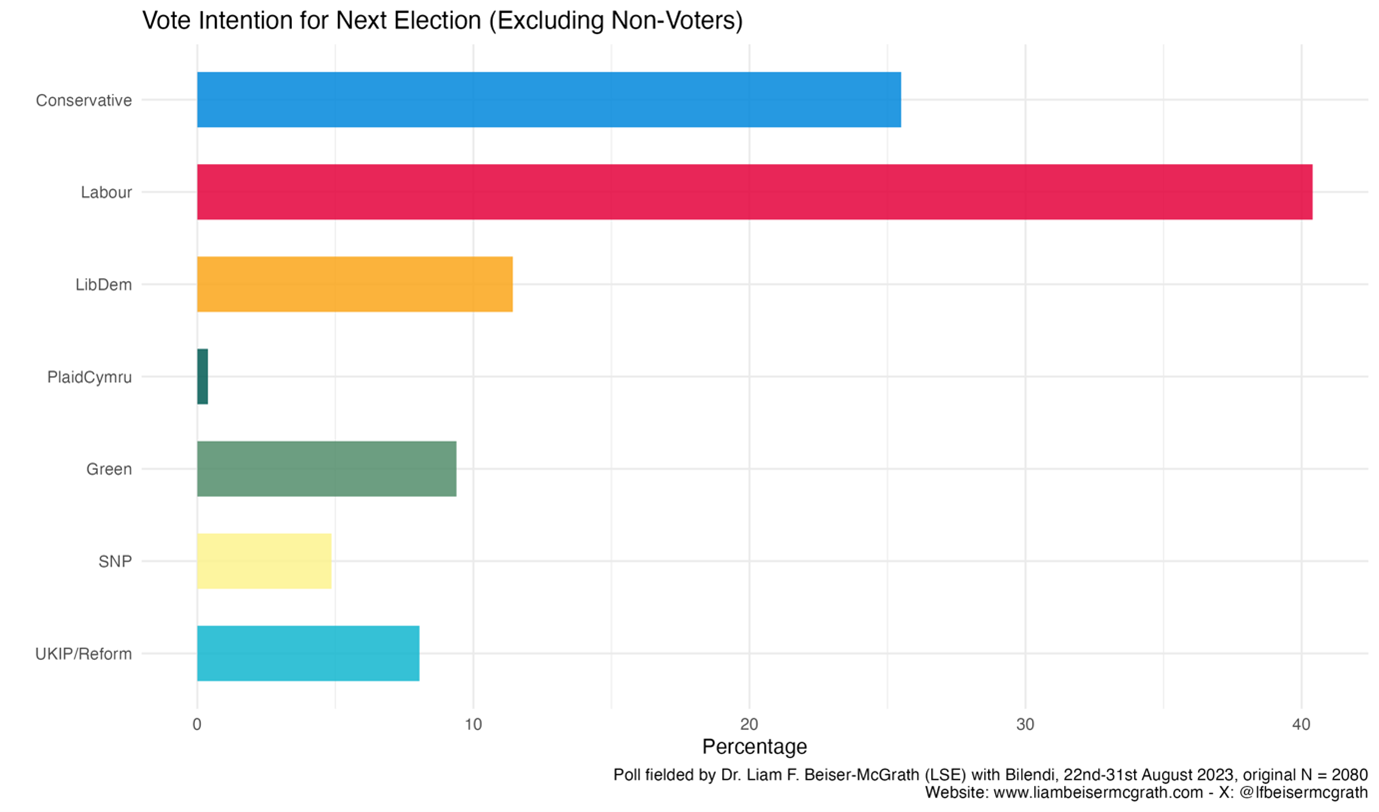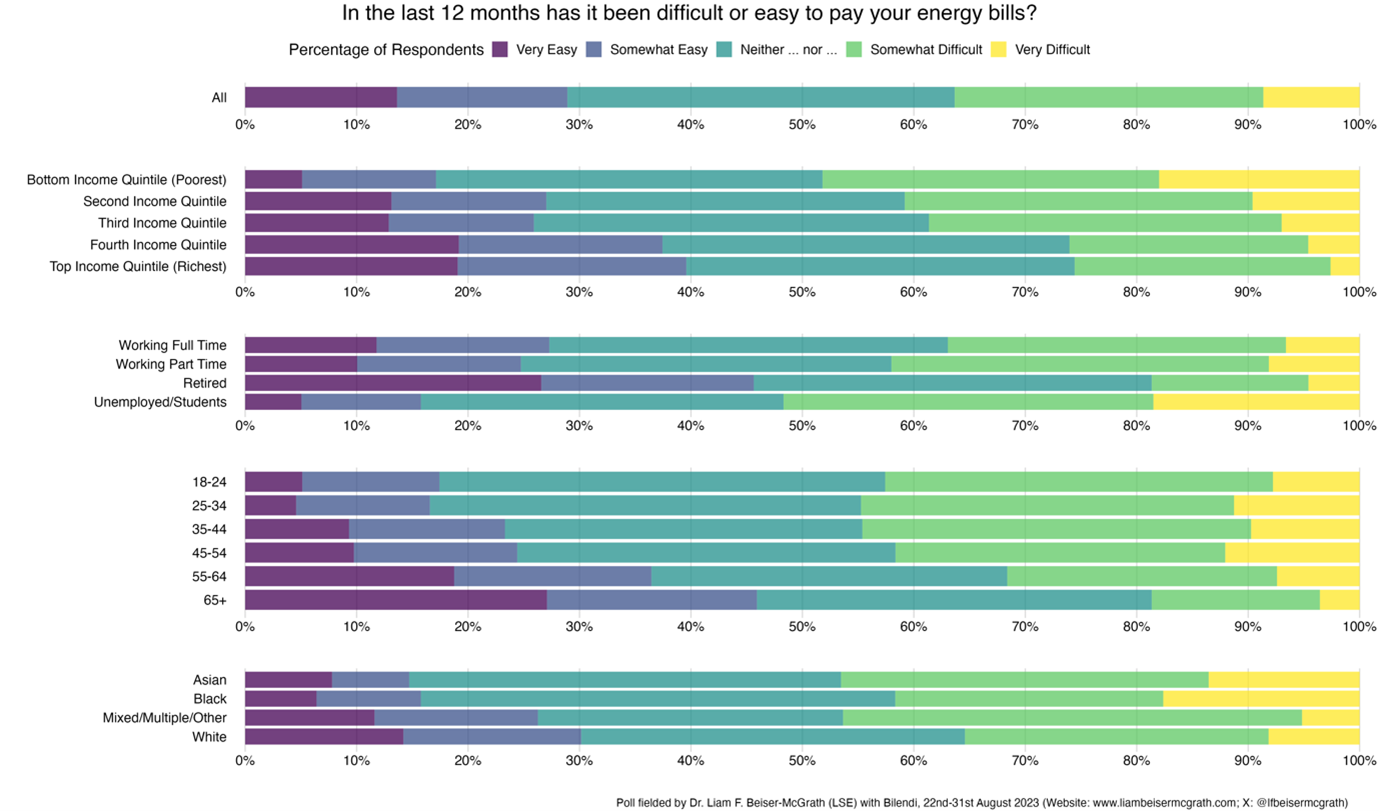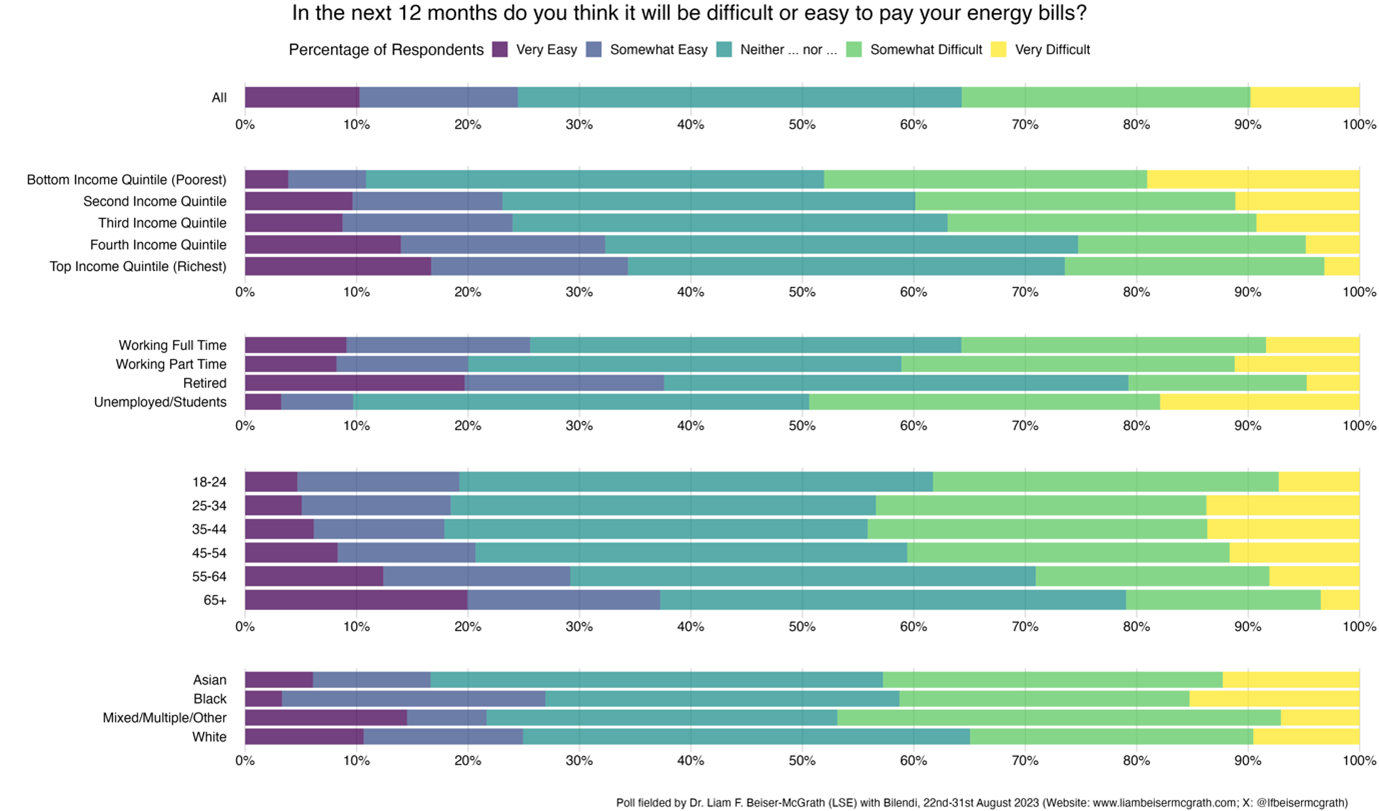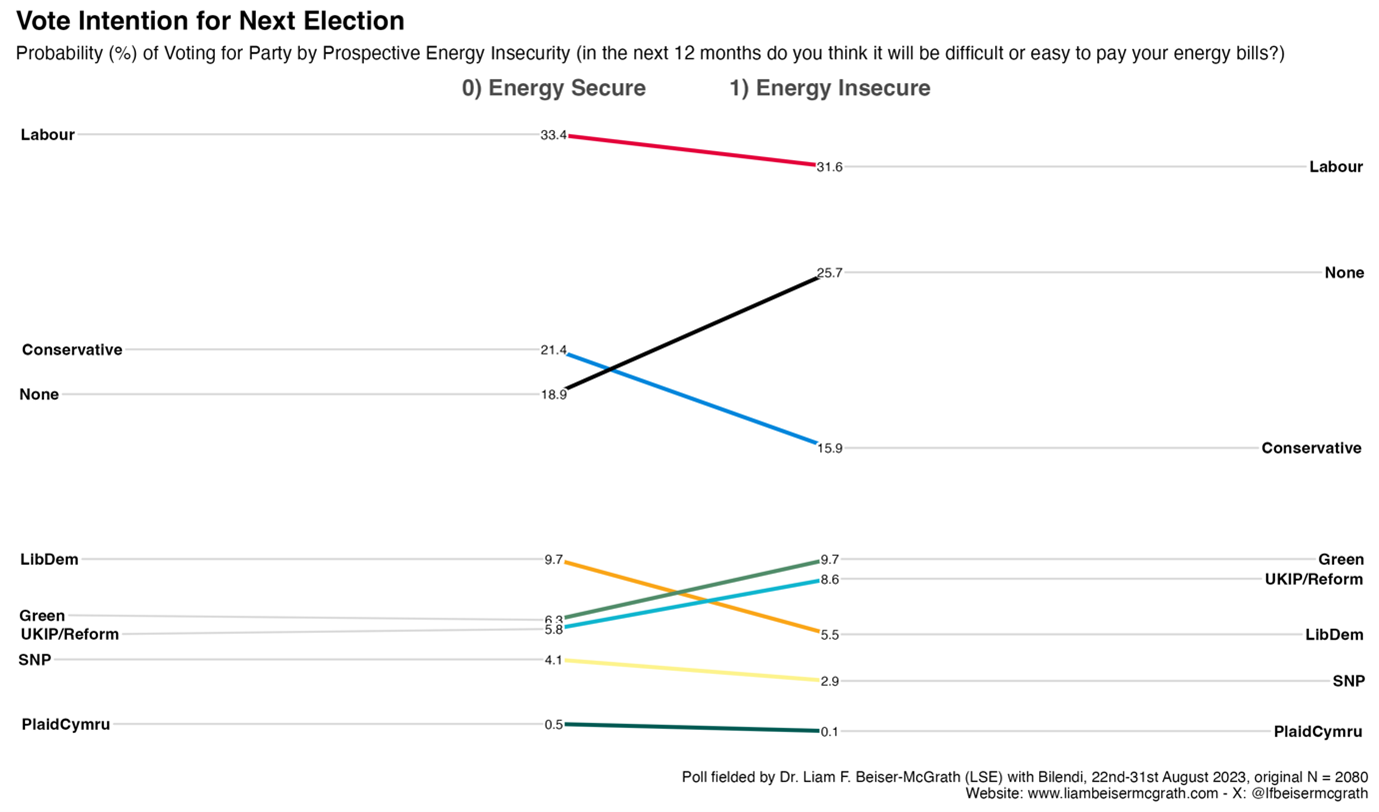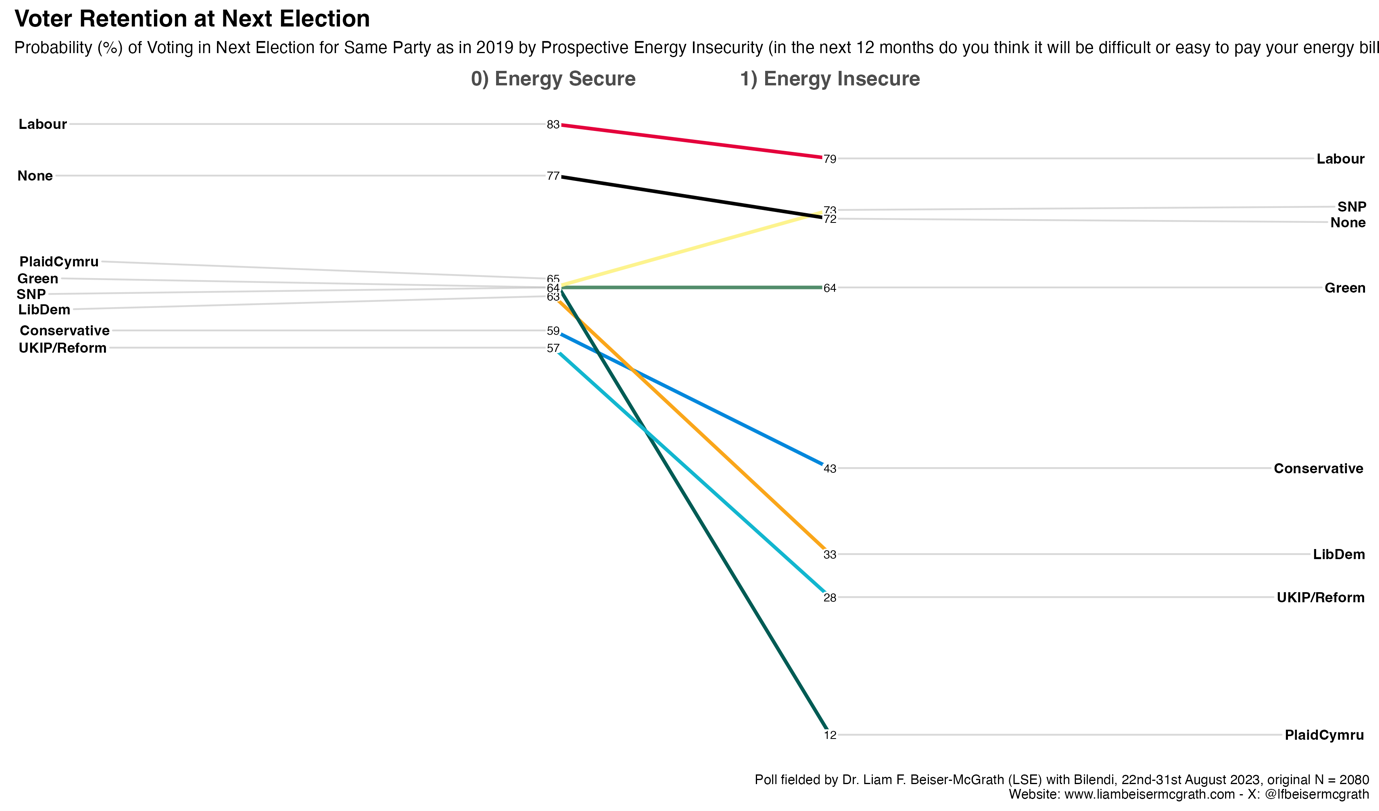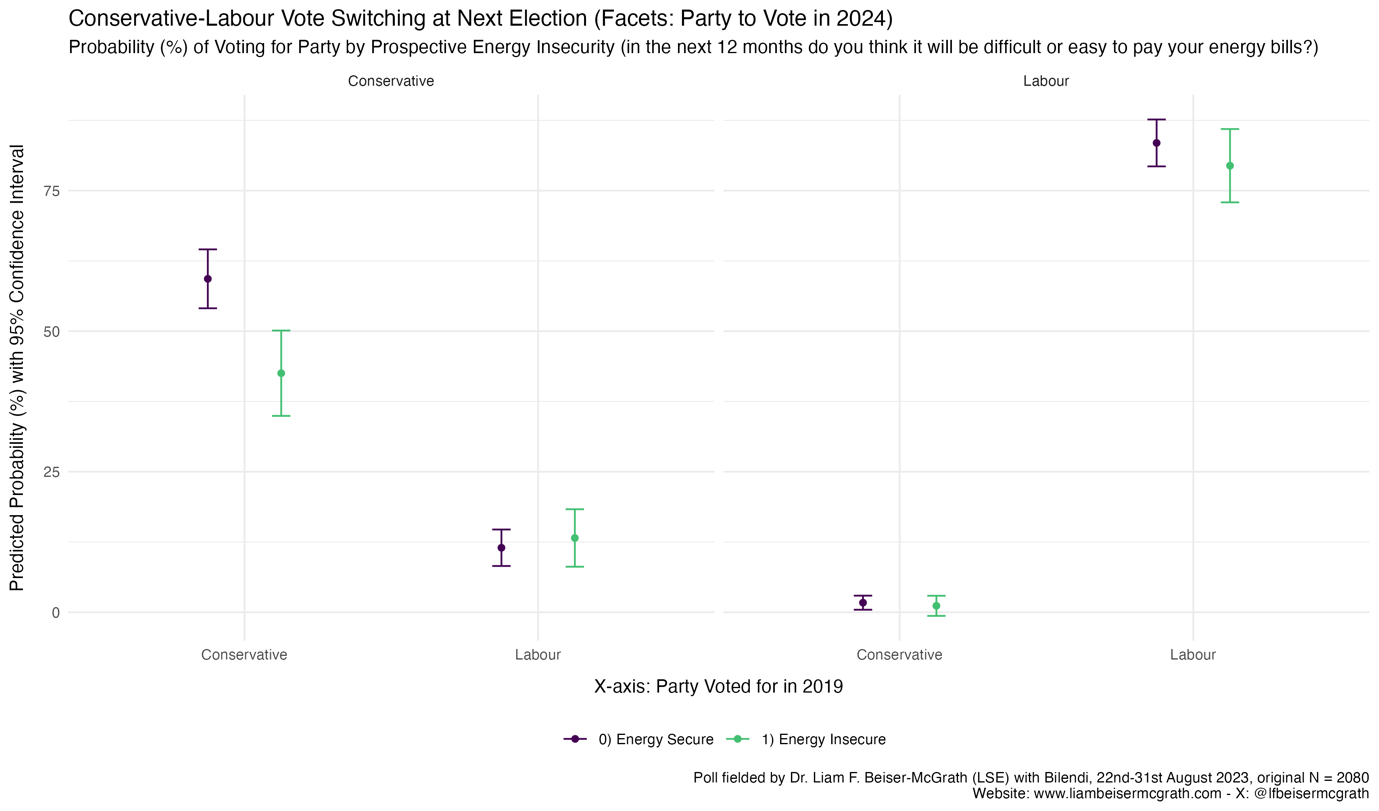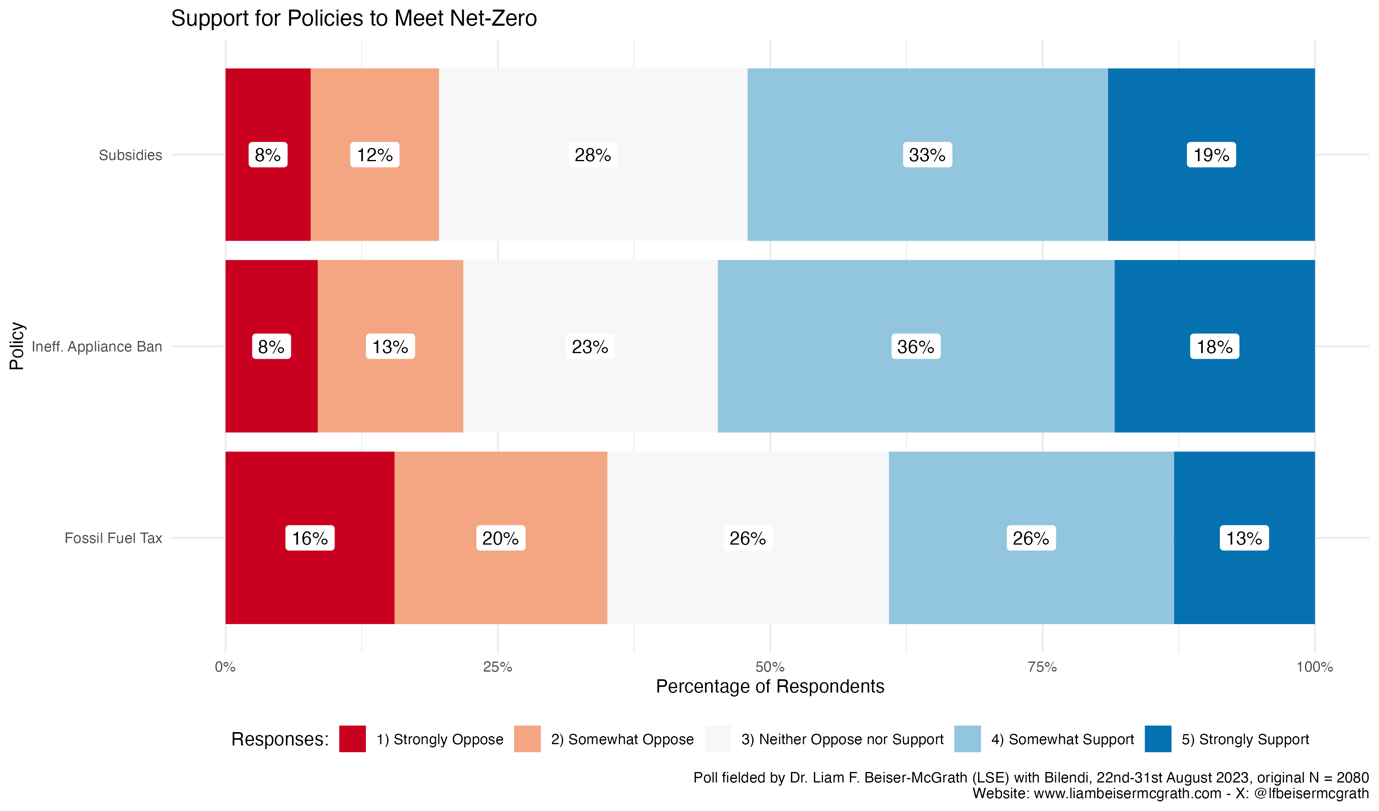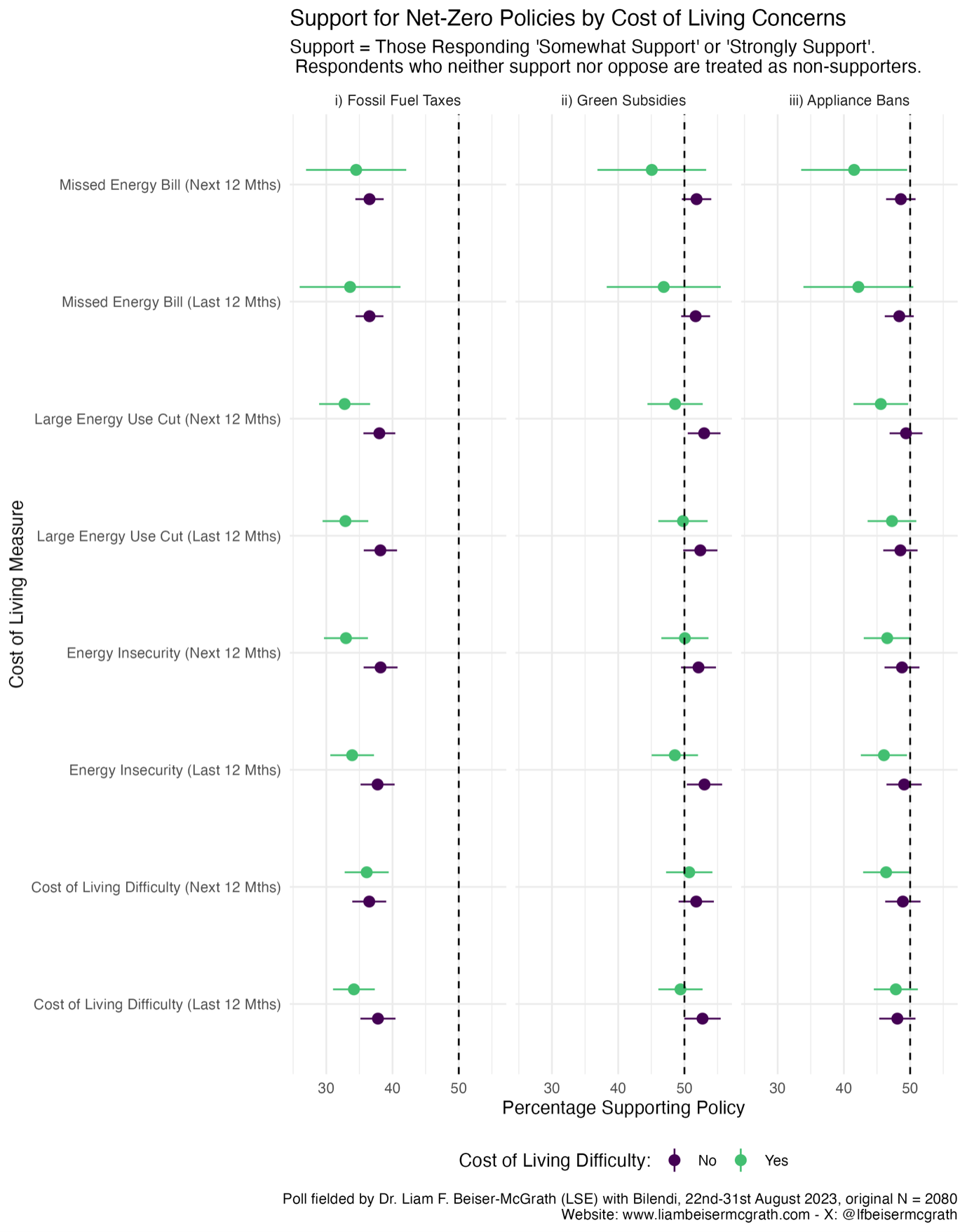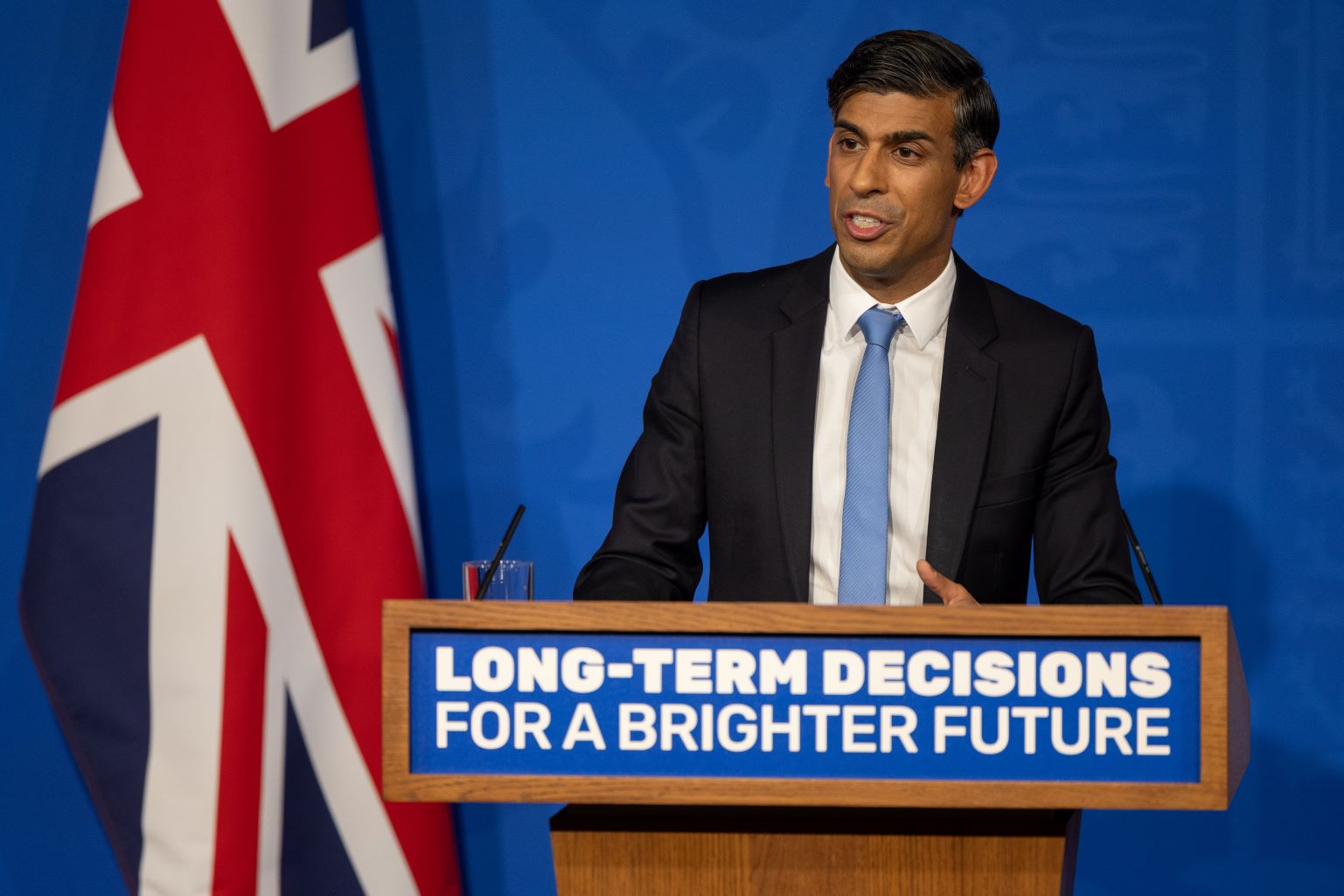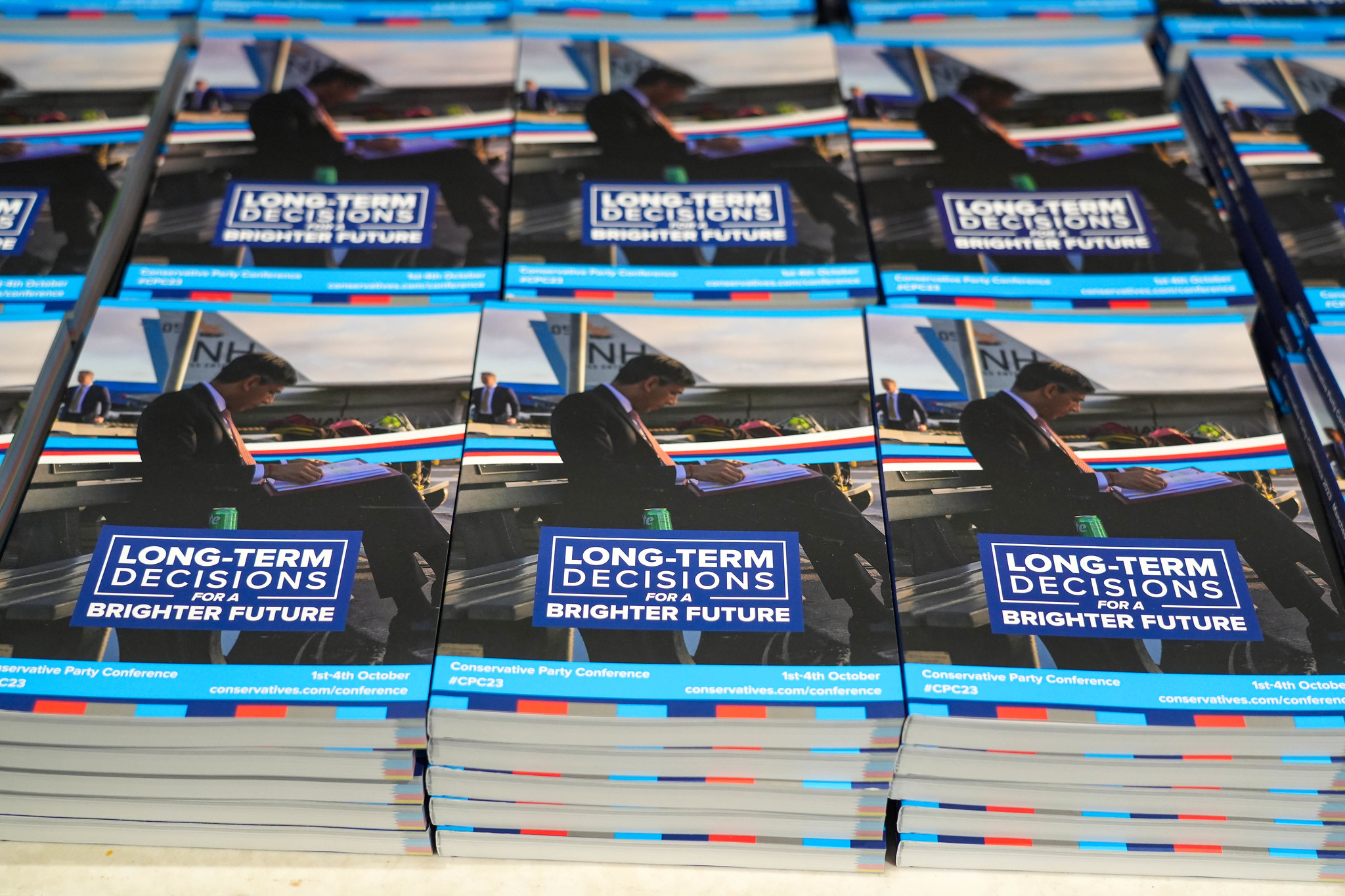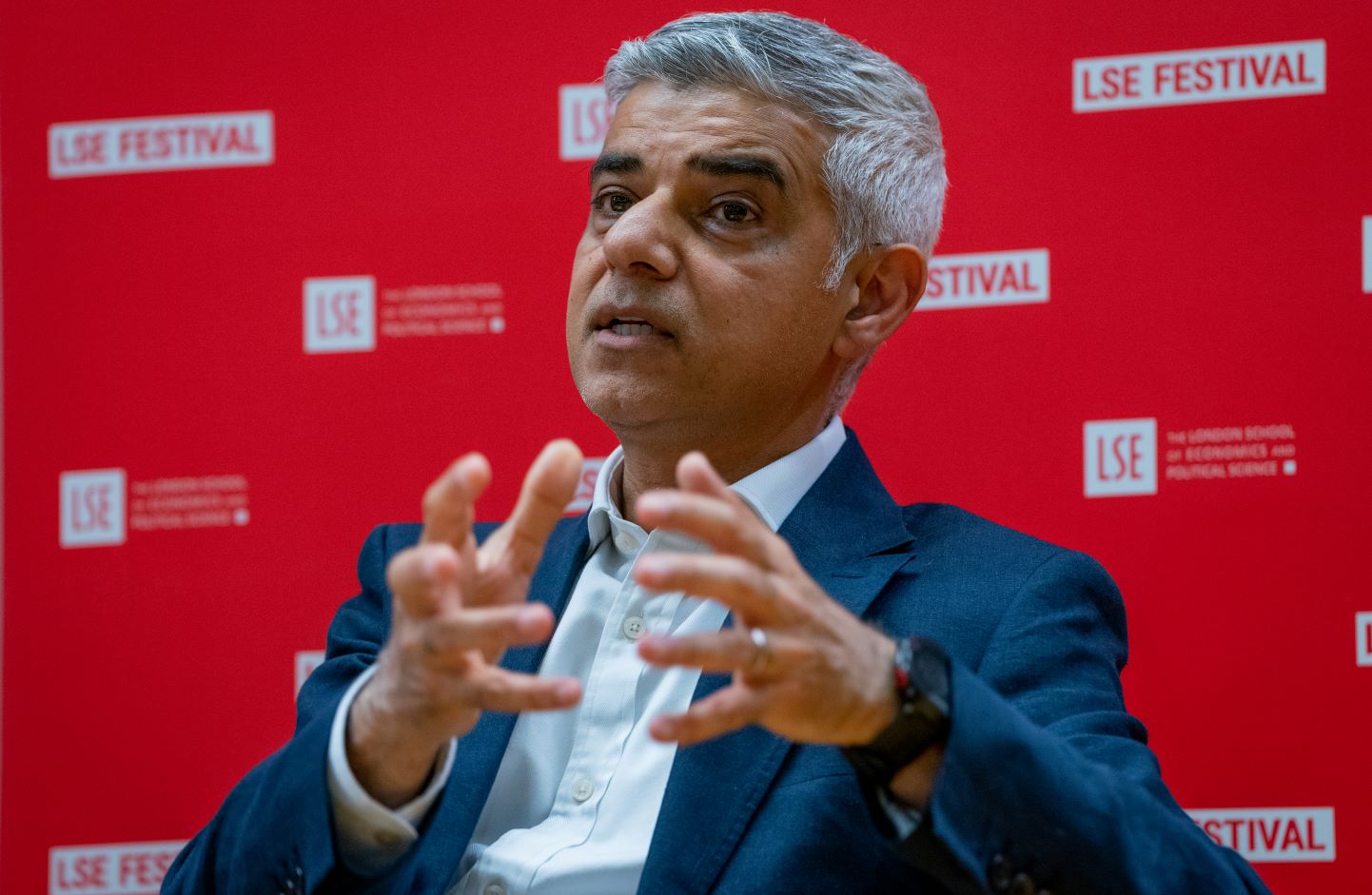How might energy insecurity and the cost-of-living crisis affect the outcome of the next general election? Liam F. Beiser-McGrath and Muzhou Zhang explain that while Conservative policies on the environment might be a gamble to secure the energy-insecure vote, the evidence suggests this strategy is based on a misreading of voters’ preferences.
In the run up to the Conservative Party conference, Prime Minister Rishi Sunak rolled back on many key aspects of the Government’s existing net zero policies. In his announcement, Sunak stated that “… it cannot be right for Westminster to impose such significant costs on working people, especially those who are already struggling to make ends meet…”.
Yet while the economic case for these claims is unclear, it highlights a political logic of attempting to weaken Labour Party support by casting net zero policies as a negative for people’s pocketbooks at this time.
The Conservative Party clearly has cause for concern regarding the next election as they are presently facing major challenges in the polls. The results of a survey fielded at the end of August, just prior to the announcement (see above) show the vote differential between the Conservatives and Labour currently stands at approximately 15 per cent.
But can this politicisation of net zero win over voters who are concerned about rising energy bills and the costs of living at this time?
To examine this within our survey, we measured individuals’ energy insecurity: difficulties paying energy bills. To do so, we look at both individuals’ experiences with energy insecurity over the past 12 months and their expectations about their likelihood of facing energy insecurity over the next 12 months.
As the charts above show, for both experiences and expectations, we find that roughly one third of respondents face energy insecurity in terms of paying their energy bills. This insecurity is heavily concentrated among low-income individuals and the unemployed/students, with energy insecurity rising to approximately 50 per cent of individuals within these groups. Additionally, non-white individuals have higher rates of energy insecurity across both measures in comparison to white individuals (approximately 55 per cent compared to 65 per cent).
These results are potentially consequential for the next election.
Individuals who expect to face energy insecurity in the next year are significantly less likely to vote for the Conservative Party and more likely to simply not vote.
Interestingly, we do not see such a pattern when looking at retrospective energy insecurity (whether individuals found it difficult or easy to pay their energy bills in the last 12 months).
Thus, although Liz Truss’s universal claim that “people never vote on the past” is questionable given the broad political science literature on retrospective voting, it appears that individuals are forward-looking in terms of energy insecurity and their vote choice in the UK at this time.
Individuals’ expecting energy insecurity who previously voted for the Conservative Party are also significantly less likely to vote Conservative again. Only 43 per cent of energy insecure individuals who voted Conservative in 2019 intend to vote for the Conservatives in the next election. In contrast, while there is a small dip in Labour Party support when comparing energy insecure and secure individuals (83 per cent to 79 per cent) this is not statistically significant at conventional levels.
The Labour Party, however, does not appear to be picking up those voters who have turned away from the Conservatives since the last election. While approximately 12 per cent of previous Conservative voters intend to vote for Labour in the next election, this barely changes when comparing those expecting energy insecurity and those who are not.
One could imagine then that the Conservative Party’s net zero rollback is a way to deal with issues with voter retention and convince individuals concerned about meeting their energy bills to vote Conservative?
Energy insecurity’s muted impact on net zero policy support
We investigated this by examining whether individuals’ energy insecurity and broader cost-of-living concerns are associated with support for net zero policies.
First, it is important to note that not all policies aiming for net zero are equal in terms of public acceptance. While subsidies and inefficient appliance bans receive majority support in general, fossil fuel taxes are highly contested.
Is support for net zero policies lower among the energy insecure?
We find that individuals’ energy insecurity and cost-of-living concerns do not generally weaken support for net zero policies. Comparing individuals who are facing a particular cost of living or energy insecurity difficulty to those who are not, we see small, statistically insignificant support for the net zero policies we measured.
The one exception to this is fossil fuel taxes, where energy insecure individuals often show significantly lower levels of support. However, as noted previously, fossil fuel taxes are already politically contested and fail to win majority levels of support in the first place. Notably, fossil fuel taxes are not among the policies rolled back in the Conservative Party’s changes to net zero and are not featured to any large degree in the Labour Party’s current green policy proposals.
Some net zero policies are contested, but not those being rolled back
Overall, we find that individuals facing energy insecurity and cost-of-living concerns are a sizable block to reach in the next election. The Conservative Party is having difficulty retaining these voters at present. However, the Labour Party is not currently attracting sizable numbers of former Conservative voters who fit this profile. Moreover, the types of net zero policies being weakened by the Conservative Party are not those which are likely to boost political support at this time.
Nevertheless, even for those net zero policies such as fossil fuel taxes, which face the challenge of public acceptance, there is room for manoeuvre in terms of policy design to increase their popularity. Previous research has found that the popularity of carbon taxes can be increased through revenue recycling, that is, using the revenue generated by such taxes to provide benefits to citizens that offset their increased costs. However, the devil lies in the details, as pocketbook and distributional implications can also generate political backlash among high-income voters.
Additionally, since the Uxbridge by-election, related green policies such as Ultra Low Emission Zones (ULEZ) are increasingly politically salient, and may explain the Conservative Party’s moves in this area. Yet while research shows that ULEZs do have implications for vote choice, these can also be weakened through compensation mechanisms.
What is for certain, however, is that as the implementation of meaningful policy necessary to reach net zero targets ratchets up, these political and distributional conflicts are likely to be an ever-growing feature of politics in countries around the world, not just in the UK.
All articles posted on this blog give the views of the author(s), and not the position of LSE British Politics and Policy, nor of the London School of Economics and Political Science.
Image credit: Conservative Party, CC Attribution 2.0 Generic


